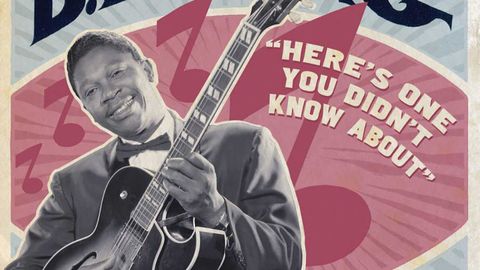BEFORE SIGNING TO major label ABC Paramount in 1962, BB King made his name at the Bihari Brothers-owned RPM and Kent labels from 1950 onwards, scoring repeatedly in the R&B charts. Archivists Dick Shurman and Roger Armstrong have dug into the vaults of these Los Angeles-based independents to put together a magnificent 25-track compilation that shows the late bluesman close to his best.
Despite 23 of the recordings being previously unreleased and the other two having only been issued in 2014 by Ace on Speak Easy – The RPM Records Story Volume 2, the performances are powerful and complete, with no obvious flaws, and the sound quality is superb throughout. This is no barrelscraping exercise but a near-essential selection that provides further proof of BB’s genius.
The title of the CD comes from BB’s remark as he departs from the recording schedule to introduce the amazing 1961 reworking of Catfish Blues (aka Fishin’ After Me) that opens the album. Recorded a year after the issued single and album version, it probably represents how the song had been adapted on stage. Taken at a faster pace, this new version seems designed to send audiences into a frenzy as it ebbs and builds, with King’s gospel-influenced vocal delivery particularly fervid as he pleads between blaring horn blasts. An approving King suggests it be released as a single, asserting “people like it, the way we do it”, but it remained unissued.
There are also two alternate versions of one of his signatures, Sweet Little Angel, one from a Little Rock radio station, the other a 1955 LA take complete with a false start and an extra verse unheard elsewhere. The 1954 hit When My Heart Beats Like A Hammer is present in a fascinating first take. The 1955 instrumental Talkin’ The Blues (Take 2) is a great showcase for King’s guitar that lacks the horns of the released version, while take two of Early In The Morning demonstrates the influence of T-Bone Walker, incorporating lyrics from Walker’s Inspiration Blues and T-Bone Shuffle.
The lecherous 1954 jump blues Whole Lotta Meat Take 10 really swings but was scrapped after 14 takes. The stirring, infectious Be Careful Baby from around 1960 remained on the shelf despite featuring lively horn arrangements and some great playing from King. Excerpts from a King interview and a King-voiced advert are fun hidden bonuses.

